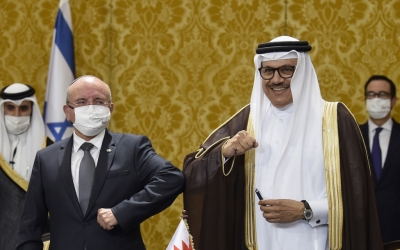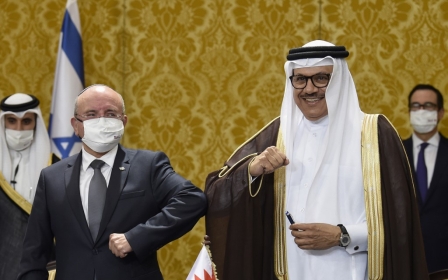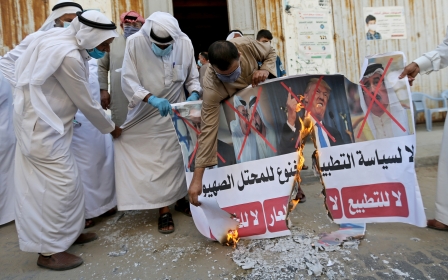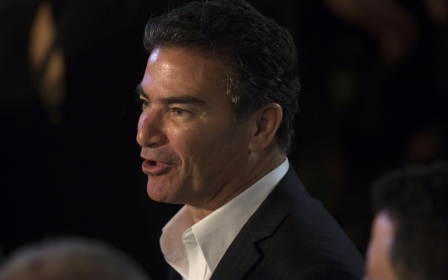Israeli parliament approves deal establishing ties with Bahrain
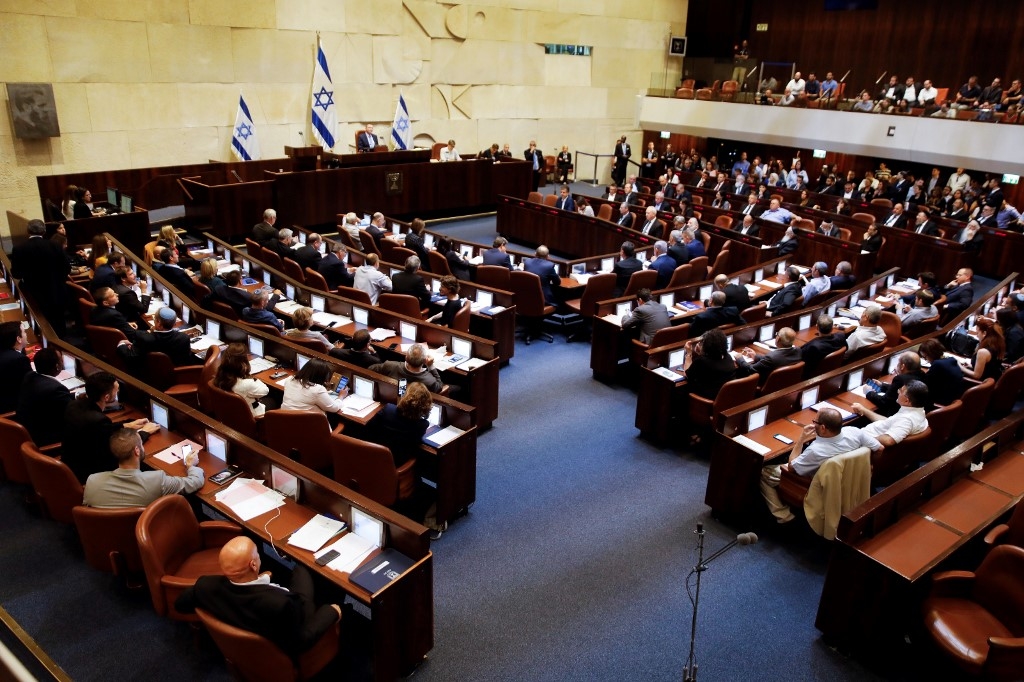
Israel's parliament on Tuesday approved a US-brokered deal establishing formal relations with Bahrain, by a vote of 62 lawmakers in favour and 14 opposed.
The Middle East countries signed a joint communique on 18 October to formalise their nascent ties.
Bahrain is one of three Arab countries - along with the United Arab Emirates (UAE) and Sudan - to agree to the normalisation of relations.
"The Knesset (parliament) plenum approved the joint announcement regarding the establishment of diplomatic relations, peace and friendship between the State of Israel and the Kingdom of Bahrain," a Knesset spokesman said in a statement.
Palestinians have denounced the normalisation deals, desribing them as a "stab in the back".
Tthey say the accords violate a longstanding pan-Arab position that Israel could normalise relations only in return for land.
Israel exchanged embassies with neighbours Egypt and Jordan under peace deals decades ago.
But until now, all other Arab states had demanded it first cede more land to the Palestinians.
The UAE said it had obtained a major concession from Israel and the US to halt plans to annex territory on the occupied West Bank.
However, Israel has insisted that annexation remains a possibility.
'Bahrainis against normalisation'
There has been continued opposition to the deal in Bahrain, with the hashtag "Bahrainis against normalisation" a popular trending topic in the Gulf kingdom.
Opposition is so strong that Bahrain has refrained from using the term "normalisation," which signifies to some Bahrainis domination over Palestinians.
Speaking at parliament ahead of Tuesday's vote, Israel Prime Minister Benjamin Netanyahu predicted more regional countries would move to open relations with his country, Reuters reported.
"The] buds of normalisation are already out there, waiting to blossom. If we pursue the policy I crafted, I am convinced that the flowering will be witnessed in the open," Netanyahu said.
Middle East Eye delivers independent and unrivalled coverage and analysis of the Middle East, North Africa and beyond. To learn more about republishing this content and the associated fees, please fill out this form. More about MEE can be found here.


